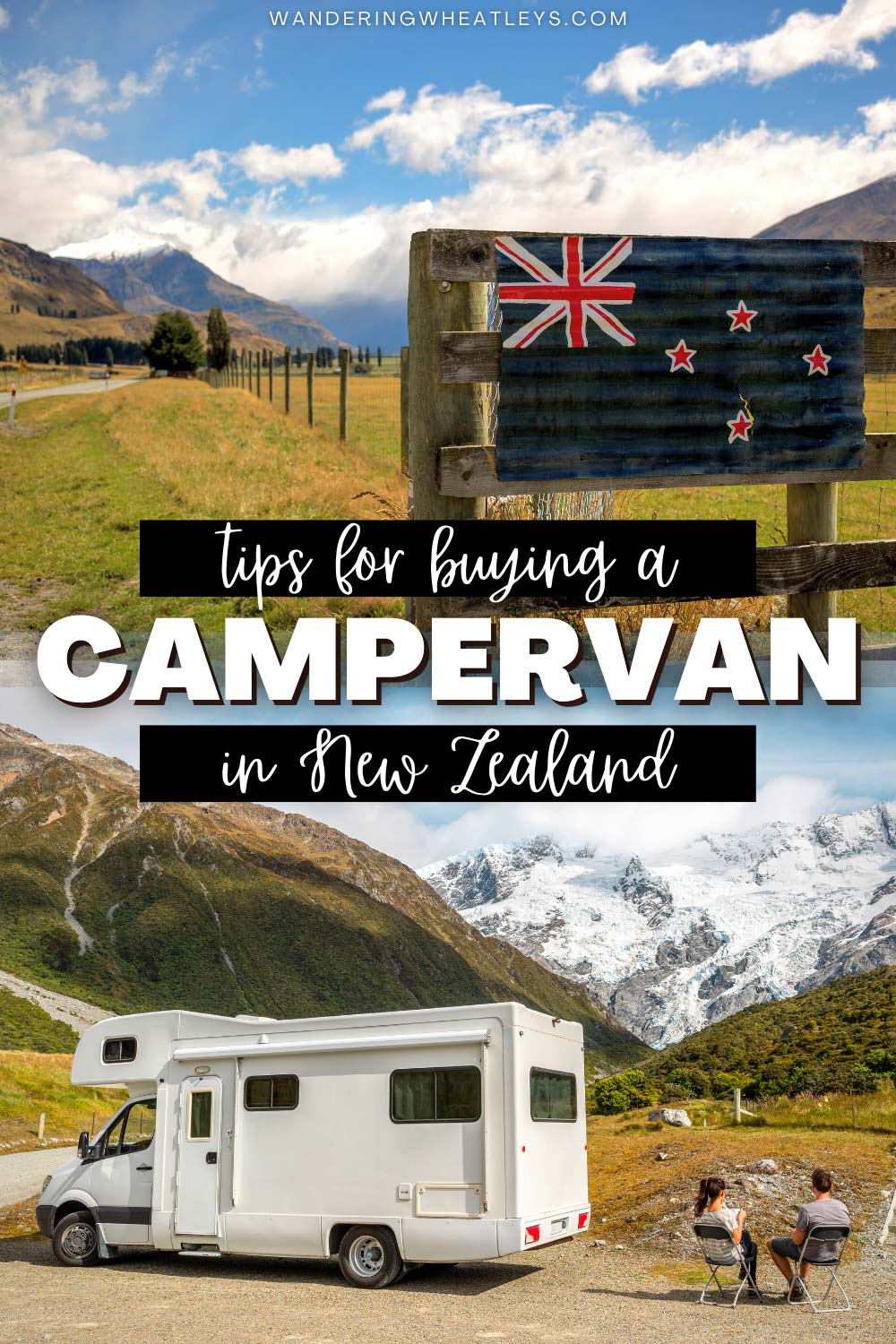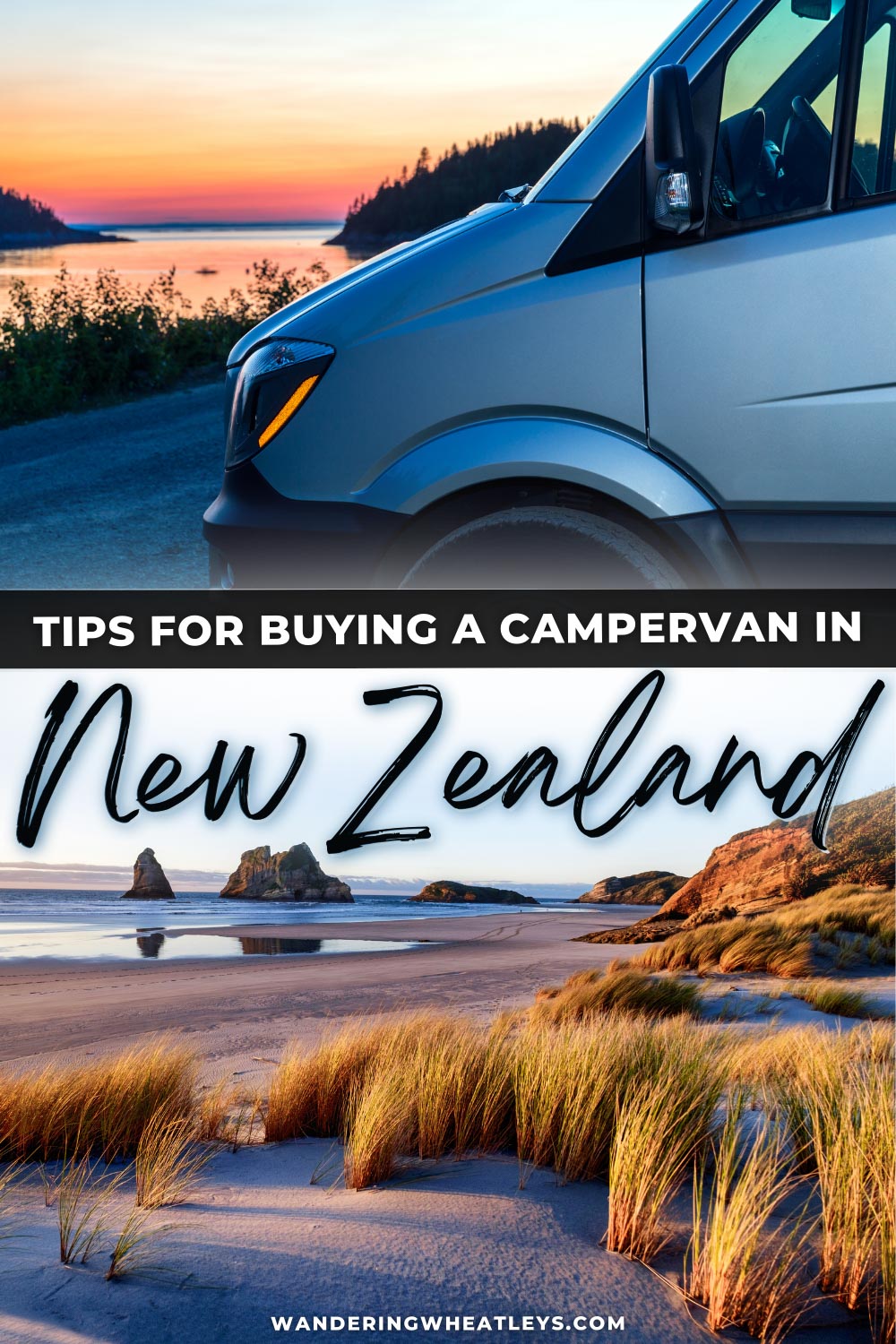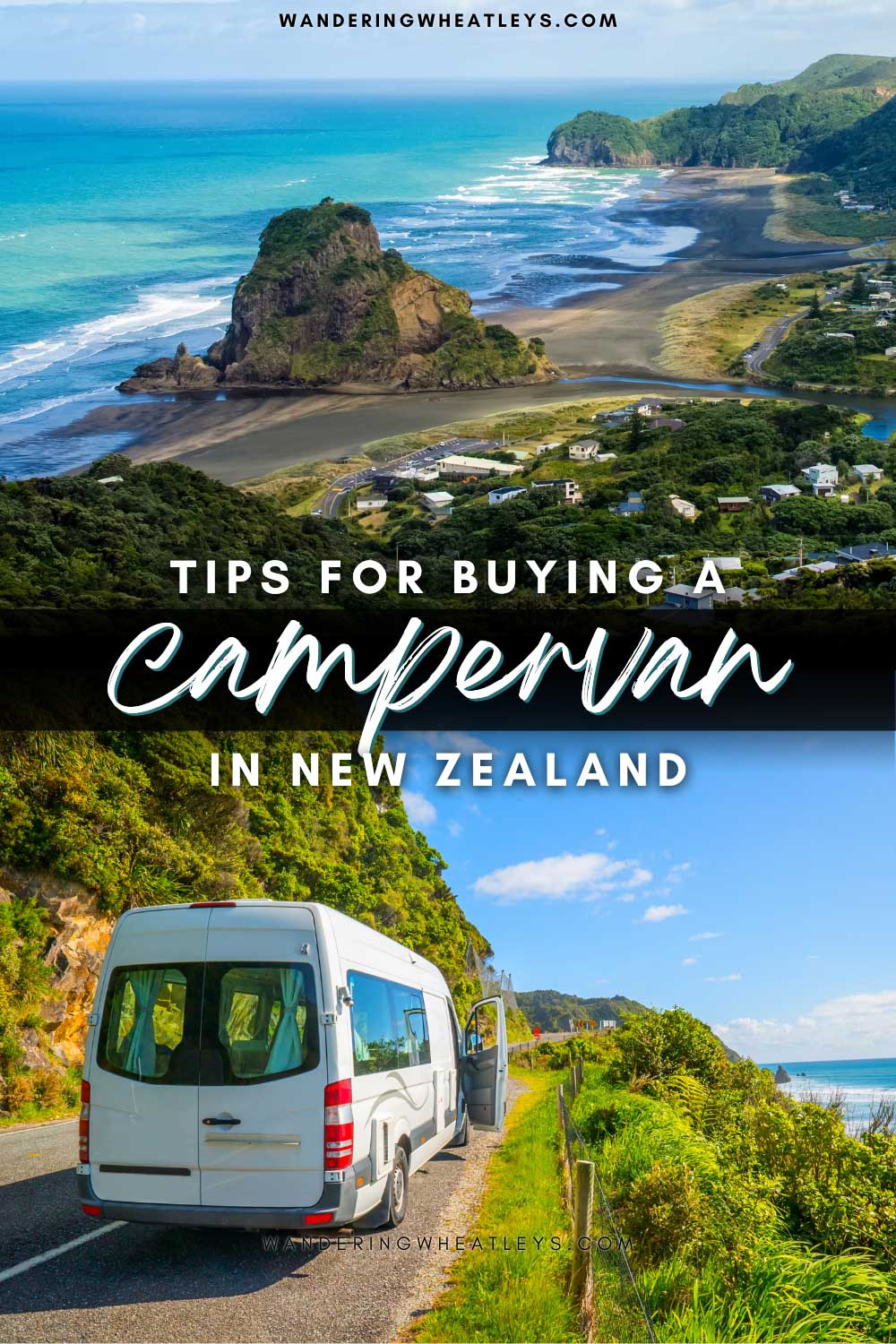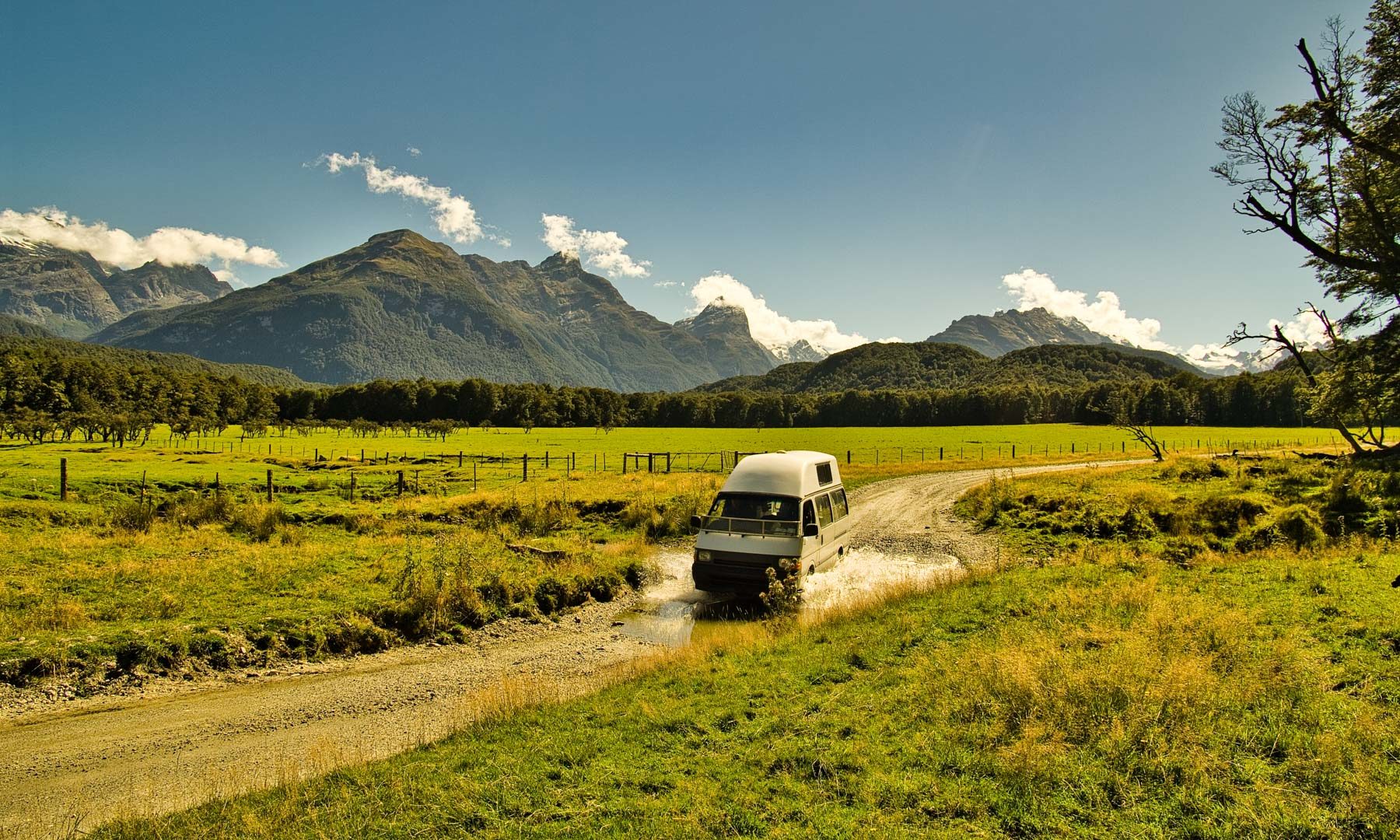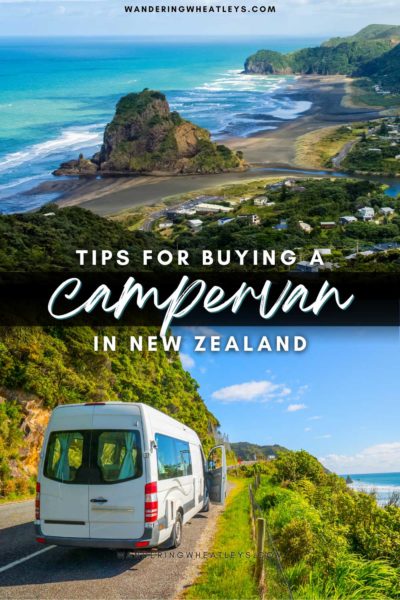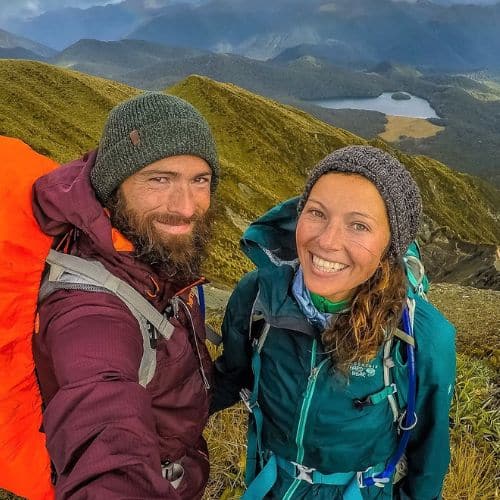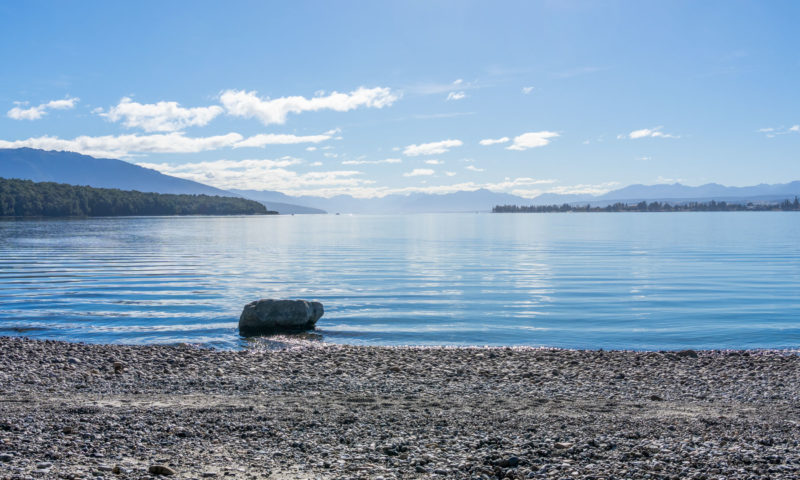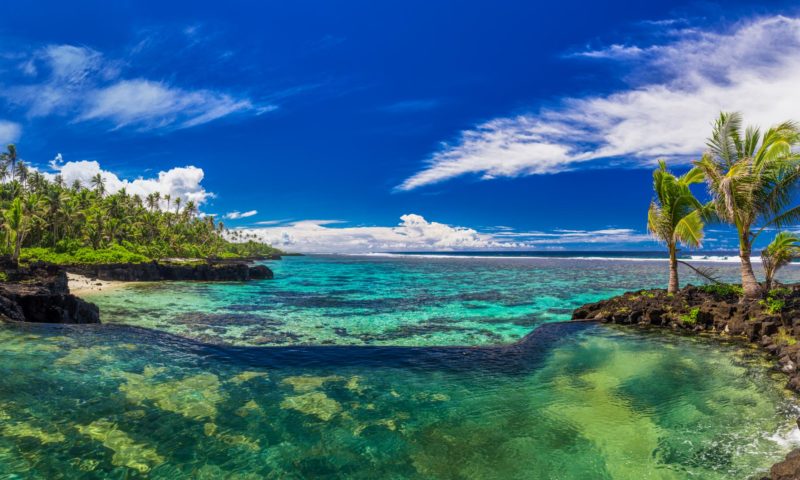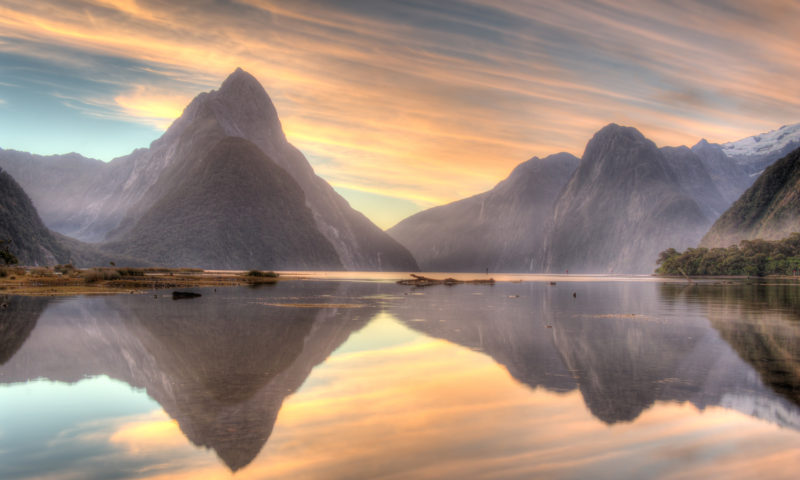Buying a campervan can be overwhelming. Handing over several thousand dollars to a stranger is a little scary. Cars and vans in New Zealand are turned over each season by backpackers, leaving doubt about the condition of the vehicle.
We arrived in New Zealand in early March, a good time to buy a vehicle, and planned to stay until the end of May, a bad time to sell a vehicle. So we needed to be confident that we got a good deal on a reliable campervan. Hours of research and countless nights were spent browsing backpacker boards because we wanted to find that perfect campervan.
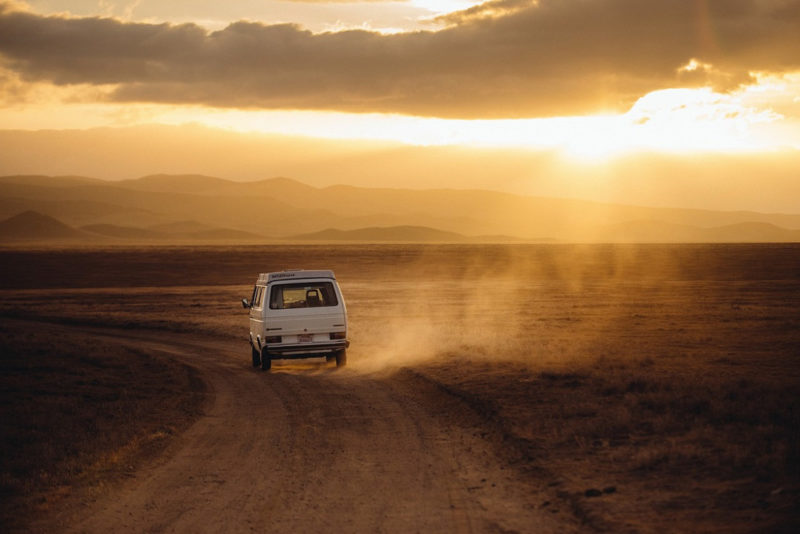
After looking at several backpacker-ready vans, we felt stuck. Many of these vans were beat up, with high mileage, and quite old. Plus the prices were too high. Half of our meetups were canceled last minute because “the van was just purchased by another backpacker.” The frenzy was on.
Instead of buying a campervan from a backpacker, we changed direction and took another approach. We decided that whatever we purchased, we would prefer to sell to a local at the end of our stay.
We settled on a station wagon that could also sleep us comfortably. The seats would fold completely flat and it was large enough for two to sleep in the back. Not only was it discreet but it saved us heaps of gas. With lots of storage space available in the trunk, we packed it up, and hit the road in our new New Zealand car!
Read on all about our lessons learned to help you buy your own campervan in New Zealand!
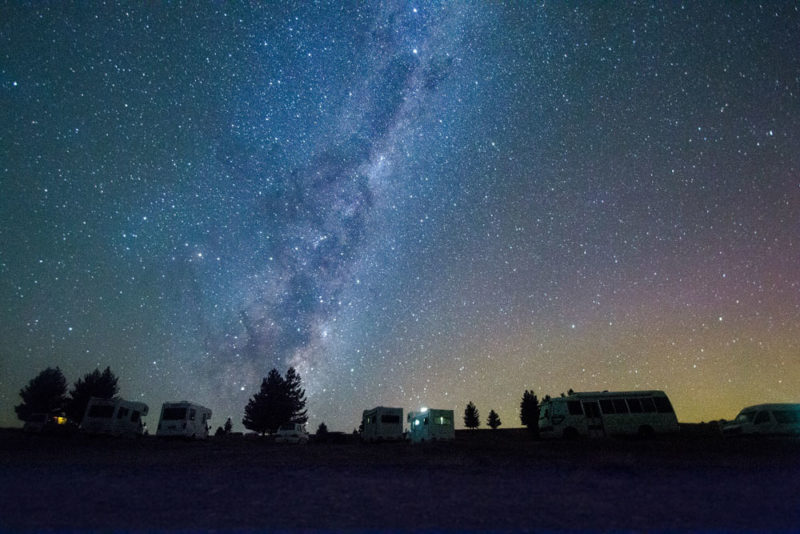
Content and photographs provided by Yana Kogan and Timon.
Disclaimer: This post may contain affiliate links. If you make a purchase or booking through one of our links we may earn a small commission (don’t worry, it’s at no extra cost to you).
Tips for Buying a Campervan in New Zealand
When to Buy vs. When to Rent
Buying and selling a campervan takes time and effort. While it is possible to get lucky, allocate at least two weeks for the purchase and sale of the vehicle. It should take three to four days to buy a campervan, and may take over a week to sell it.
The main deciding factor in buying vs. renting is the length of stay. We believe buying is only worth the investment if you plan on staying longer than two months. If money is lost when selling, it will usually be less than the cost of a rental.
Keep in mind that there are some risks with buying a campervan. Managing maintenance issues and potential breakdowns will cost you time and money and might make it more difficult for you to sell your campervan.
Best Season to Buy a Car
The backpacking season peaks during the NZ summer (December – March), making late spring and summer a buyers frenzy and late summer and autumn a sellers frenzy. Prices will be higher in spring and lower in autumn as a result.
We recommend visiting New Zealand from late summer to autumn. There are great deals for vehicles during this time. With that said, it is tougher to sell the vehicle as it gets close to winter.
How Much to Budget
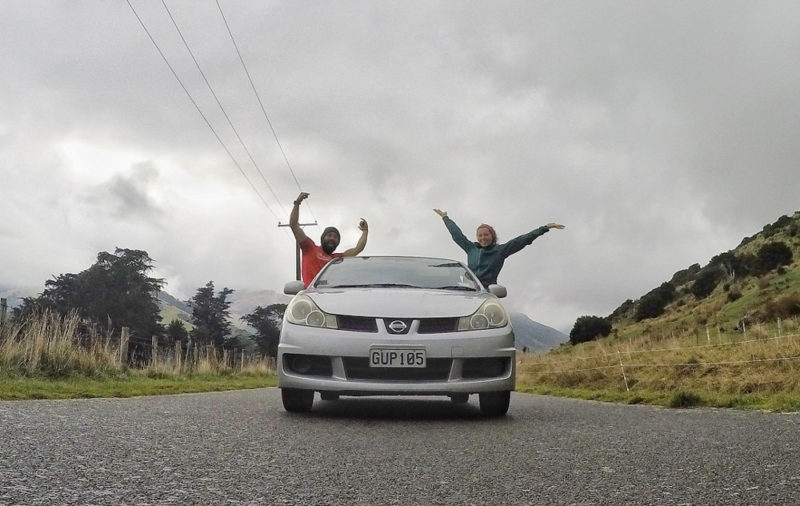
Depending on the vehicle type, it is important to have a budget in mind. On average, most vehicles sell in the range of $2,500 to $4,000 for an older backpacker car; however, it is possible to get a very cheap small car (as low as $1,500) or invest more in a self-contained campervan (up to $8,000).
Certificates and Inspection
Driver’s License
A valid driver’s license is required to drive in New Zealand; however, the license must be in English. In order to buy a vehicle, an internationally recognized license and a valid passport are the only documents required.
New Zealand Warrant of Fitness (WOF)
A Warrant of Fitness is a regular inspection to make sure that the vehicle meets certain required safety standards. A valid WOF is required for any vehicle to drive in New Zealand. Tests are conducted on the vehicle for lights, tire thread, seat belts, brakes, suspension, leaks, and other minor checks.
While this is not a full vehicle inspection and does not look at major things like the engine and transmission, it is the first step to making sure the vehicle is in good enough shape to drive.
Vehicles manufactured before 2000 get a WOF valid for six months. Anything newer than the year 2000 gets a WOF for one year. It is best to get a WOF done at a reliable mechanic or a local AA shop. Read more about WOF here.
Vehicle Registration
Registration is required for all vehicles and you’ll need to pay a registration fee. Find out more information here.
New Zealand Road User Charges (RUC)
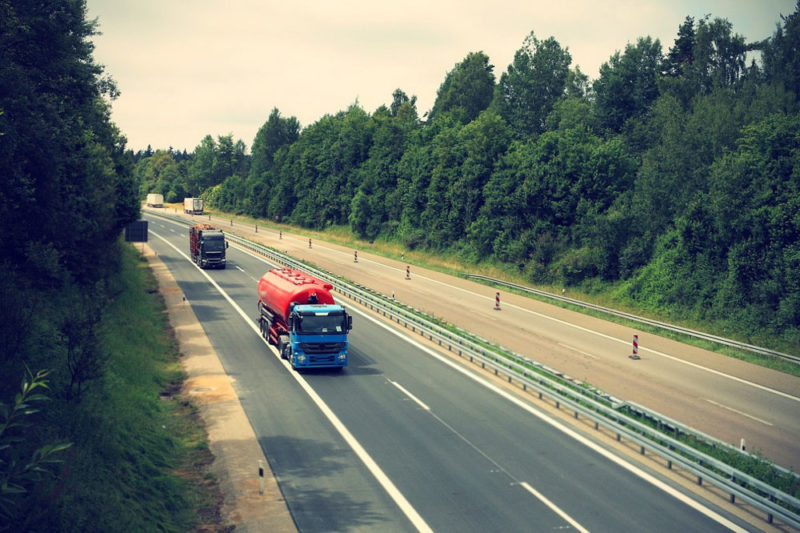
All vehicles pay to be on the road in New Zealand. Most cars (petrol, under 3.5 tonnes) already pay taxes on petrol. Vehicles that must pay RUC are diesel-operated vehicles over 3.5 tonnes. A separate RUC license is required for purchase in intervals of 1,000 kilometers. For every 1,000 kilometers driven, a fee will apply.
The intent of this charge is for trucks but some campervans also fit into this category and are required to pay RUC. Find out more at NZTA.
AA Report/Pre-Inspection
Before buying any used vehicle, it is best to get it fully inspected. This can save hundreds if not thousands of dollars to ensure you don’t get a dud. If there are no issues, this report is a good selling tool when selling the vehicle.
Go to a reliable mechanic or one of the many AA locations throughout New Zealand. Find AA locations here.
Vehicle History Report
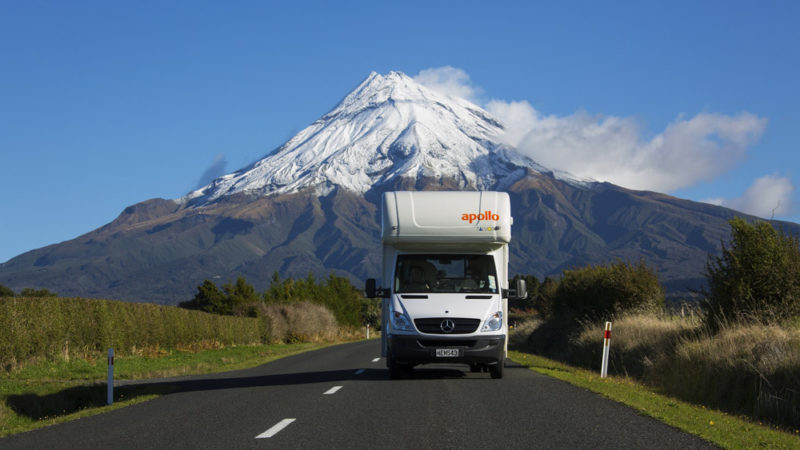
Buying a vehicle history report will uncover any prior theft or accidents. If the vehicle is imported or used, it will only show reports from New Zealand onwards. Purchase a report at Motorweb.co.nz.
Important Things to Know Before Buying a Campervan in New Zealand
Consumer Guarantee Act
This does not apply to private sales, but when purchasing a vehicle from a dealership, it is good to read up on this law. If they sell a lemon there is protection. The law provides buyers protection if a product they purchased has issues that were unknown or unforeseen at purchase. Read more about the Consumers Guarantee Act.
Insurance in New Zealand
It is not compulsory to have car insurance in New Zealand. But it is recommended that you get third-party insurance at least, so if you cause an accident you are covered for any damage you cause to other cars.
Comprehensive insurance covers everything. If there is an accident, it covers all costs for vehicles involved and all persons involved minus a deductible. Third-party insurance; however, would only cover the costs to the other vehicle and persons involved. It would not cover the damage to your own vehicle. As a result, it is more affordable.
We recommend AA comprehensive insurance.
Change of Ownership
Change of ownership can be done online on the NZTA website. The buyer and seller will have to complete the online form. There are also paper forms at any NZ Post or AA office. There is a fee for the buyer when purchasing the vehicle and takes only a few minutes.
Choosing a Vehicle Type
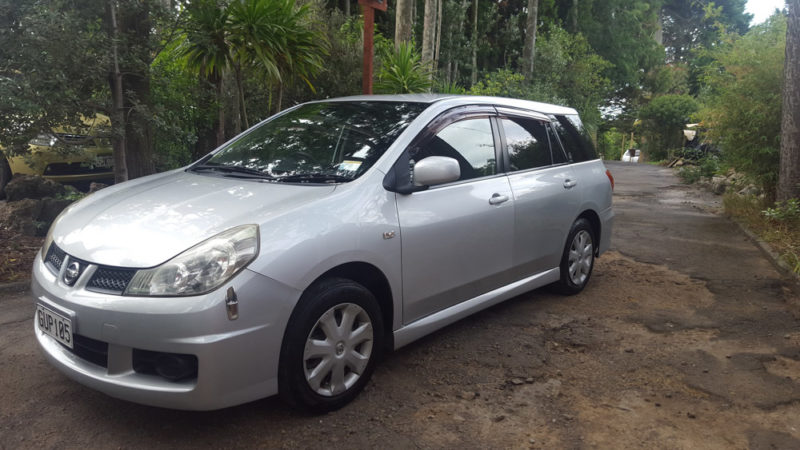
There are several options to consider when purchasing a vehicle. Is it backpacker ready? Comfortable? What is the resale value? How many kilometers? What is the overall value/condition? Which type of vehicle should I buy?
- Sedan – Cheapest option, if planning to camp will need to carry a tent
- Station Wagon – Cheap option and many station wagons can accommodate a small bed, perfect for one person or very close friends. Good for resale value.
- Mini Van / People Mover – Allows for more space and storage, better for two people. Usually supplied with a built-in bed/frame with storage underneath.
- Converted Utility Van – Awesome van, usually equipped with a kitchen so it’s perfect for rainy days. Lots of room and comfort but higher petrol costs.
- Motor Home – Obviously if you have the money to spend on one of these puppies go ahead and do it! They are really comfortable. However, they use a ton of petrol and may be more difficult to sell.
There are loads of backpacker vans that are ready to go, fully equipped with beds and all camping gear needed. However, these are typically old, with very high kilometers. The true condition of the vehicle is never known without a vehicle inspection. For peace of mind, get the van checked by a mechanic.
Another option and possibly the best for resale is to find a station wagon or van where the seats fold completely flat. Smaller in size, but better on gas mileage, this can then be resold into the car market, not only to backpackers.
Self-Contained Campervans
There are about 350 free campgrounds that are allocated for self-contained vehicles. Although not as plentiful, there are also free options for regular campervans. However, there is a large cost increase to buy a self-contained vehicle.
To decide if it is the right option for you, check one of the phone apps, Campermate or WikiCamps NZ to see how many sites are available. For more on self-containment, check out the New Zealand Motor Caravan Association’s website.
Where to Find Vehicles for Sale in New Zealand
Backpacker Boards

Backpackers post campervans as well as other goods available for sale. This is useful for other purposes like finding jobs, WWOOFing opportunities, ridesharing, and much more.
See more at Backpacker Board NZ. To learn more about WWOOFing, check out WWOOF New Zealand.
Trade Me
Trade Me is an online auction and marketplace have all types of vehicles for sale from private owners as well as dealerships. We found several good options on Trade Me, which is how we found our car.
Dealerships
There are many dealerships that specialize in used cars and vans, especially in Auckland. Used vehicles that are first-time imports from Japan cost more. The best bet is to try to find a car that another buyer traded in. Dealerships do not want these, and typically are willing to settle for lower margins.
Check out Turners or other big dealerships if you choose to go this route.
Auction
There are auctions in most major cities in New Zealand. Turners also has auctions in major cities. Auckland Turners has a Thursday auction for vehicles under $8,000. The Auckland Car Fair is the largest auction in New Zealand, located in Ellerslie it takes place every Sunday morning.
Facebook groups
Two Facebook groups, “Backpackers New Zealand” and “New Zealand Backpackers” are both good to sign up for before traveling to New Zealand. Both allow users to share posts on their campervans and cars for sale. These are also good for meetup and travel inquiries.
Another group, “Backpacker Cars New Zealand,” while smaller, is a good group to join.
Backpackers/Hostels
Many backpackers and hostels have sales binders with anywhere between 20 and 50 vehicles listed for sale. Most of these seem to be overpriced and extremely old (high kilometers), but there are likely a few gems as well.
Tips for Buying a Vehicle
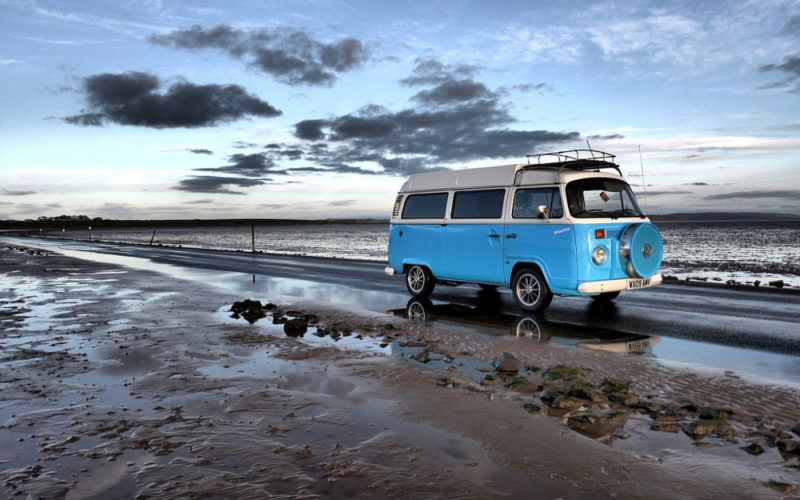
Be Proactive
Don’t bite on the first one just because it is available. Even if campervans are selling quickly, it is important to feel good about the purchase. Waiting may turn out better options or a better deal.
Payment
Most likely all vehicles sold need cash payment. Unless you have an NZ bank account or bank account in the same home country where bank transfers are easy, cash will be necessary. Make sure you have enough cash available when beginning a vehicle search.
Tips for Selling a Vehicle
Clean It
People want to envision themselves in the vehicle, not cleaning a mess. When the vehicle is very dirty, it also gives doubt about the condition and how the vehicle was treated.
Take Good Pictures
Good pictures help attract buyers. This can make a huge difference in getting interested viewers online. Make sure to take pictures just after the purchase, when your car is in as clean of condition as possible. With good pictures on hand, it is much easier to post online when you’re ready to sell.
Post Multiple Places
You’ll want to try to sell your car by using different channels and methods. Always post before it is ready to sell to start getting attention. Post on websites, including TradeMe, backpacker forums, and Facebook groups.
Be Responsive
Be proactive and responsive. Make sure it is a priority because anyone who reaches out may be the potential buyer. Be polite and responsive to any questions they may have.
Negotiate
Be willing to negotiate. No vehicle has a fixed price, especially with the seasonality of backpackers in play. Make sure to price fair and be willing to negotiate.
Other Things You’ll Need in NZ
Camping Gear and Accessories
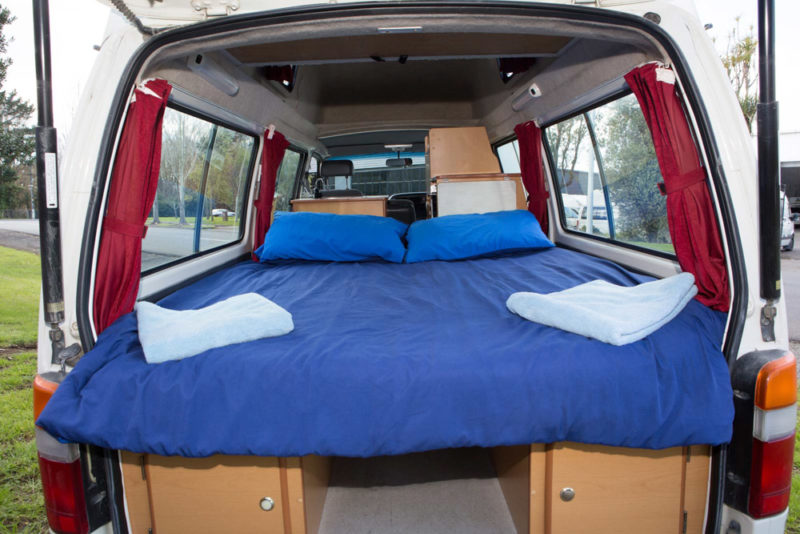
There may be some gear needed for your new van, such as camping equipment or a mattress or tent. There is a big variation in price based on the quality of the products, but New Zealand has a great range of gear available from very cheap to very expensive.
The Warehouse is a great low-end superstore with all kinds of products and basic camping gear. Products are very inexpensive and usually fairly low quality. But if you’re only using them for a few months, this could be your best option. You can find sheets, blankets, tents, mattress pads, lanterns, tables, chairs, cooking gear, and other accessories.
Macpac, Kathmandu, and Torpedo7 are higher-end outdoor brands that carry clothing, camping gear, and outdoor equipment. If you are looking to invest more in good quality products, these are a good place to start.
Food
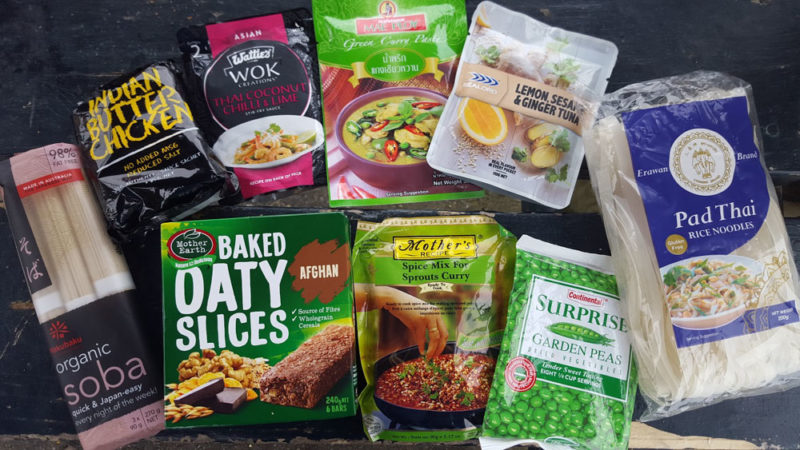
There are several types of supermarkets in New Zealand as well as fresh produce throughout the country. Here were some of our favorite places to stock up on food:
- The Warehouse – limited food, however, they had the cheapest canned food, chocolate, and candies.
- PAK’nSAVE – our favorite store for quality, variety, and price. They are typically only in larger towns.
- Countdown – a basic supermarket throughout New Zealand, typically with lower prices than New World.
- New World – slightly higher-end supermarket than Countdown, located throughout New Zealand.
- Four Square – Small convenience store in all small towns throughout New Zealand.
- Asian Food Markets – Located only in bigger towns that are great for spices and ethnic foods.
- Fresh Produce Stands – Located on highways and near farms, there are many fresh veggie and fruit stands that commonly would have the best offerings for the best prices.
Camping Apps
Before hitting the road, it is crucial to download one or both camping apps. They are essential to finding campgrounds and offer a wealth of information.
- Campermate – Awesome app for backpackers including information on campgrounds, places to go, public toilets, wifi, places for water, and much more. Be sure to read the comments!
- WikiCamps NZ – Another great app with even more filters and camping options listed than Campermate. The lack of comments and prices led us to use Campermate more often. However, there is information on DOC huts that can be very helpful.
Travel Insurance
While it is unlikely anything will occur (New Zealand is a safe country), theft and car break-ins do occur. Hopefully, it won’t happen to you. Make sure to hide any belongings in the vehicle and do not leave valuables in the car.
For peace of mind, we recommend getting travel insurance with SafetyWing, even if you have already started your trip. You don’t have to pre-determine an end date for your time abroad – you just pay the premium every month while you’re on the road and your travel medical insurance policy extends for another 30 days.
That’s it – we hope you find the perfect campervan for your trip!
Planning a trip to New Zealand? Check out our favorite books and travel guides!
SHARE THIS ON PINTEREST
